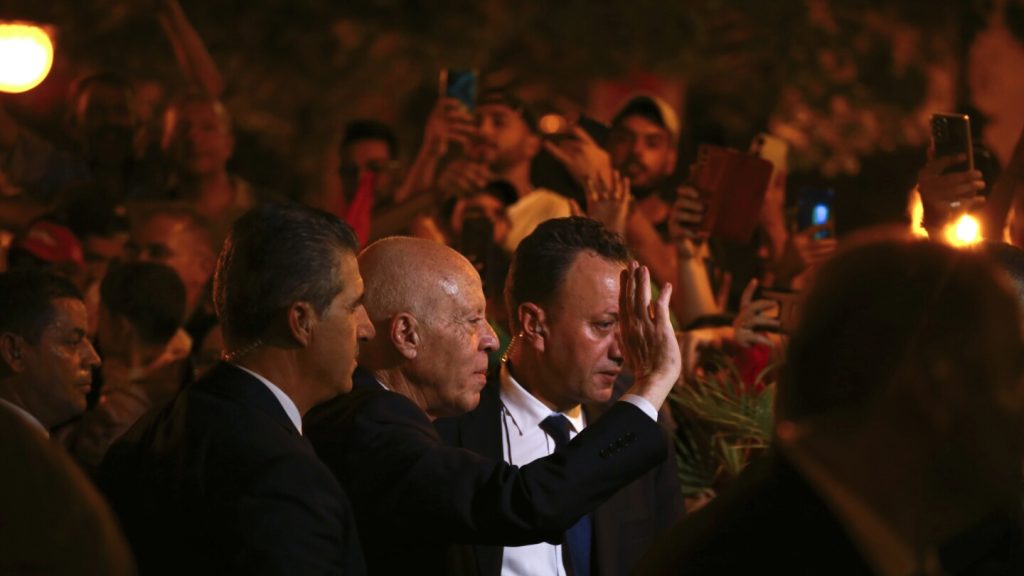Tunisia’s President Kais Saied has won re-election in a landslide victory, according to the country’s Independent High Authority for Elections. Saied received 90.7% of the vote, with his closest challenger being businessman Ayachi Zammel, who garnered 7.4% of the vote despite being in prison for election-related crimes. This election marked Tunisia’s third since the 2011 Arab Spring uprising that led to the ouster of former President Zine El Abidine Ben Ali.
Following the announcement of the election results, President Saied said he would wait for official confirmation before declaring victory. Exit polls showed Saied winning by a large margin, prompting celebrations among his supporters. The opposition in Tunisia had boycotted the election, citing concerns about the imprisonment of critics and a lack of transparency in the electoral process. Official results were expected to be released the following day.
Tunisia has been hailed as the birthplace of the Arab Spring, but the country has faced challenges in establishing a stable democracy and addressing economic issues. Despite enshrining a new democratic constitution and creating institutions aimed at promoting justice and reconciliation, Tunisia’s leaders have struggled to address economic hardships and political infighting. The lead-up to the recent election saw the arrests of several challengers and ongoing criticism of President Saied’s leadership.
President Saied has faced criticism for using emergency powers to suspend parliament and rewrite the constitution, giving himself more authority. His opponents have been arrested on various charges, including inciting disorder and violating anti-fake news laws. The president’s critics have accused him of democratic backsliding and stifling dissent, leading to a decline in political freedoms and economic challenges for Tunisia.
The low turnout in the recent election reflects a growing disillusionment with the political class in Tunisia and a desire for change among the population. Supporters of President Saied believe that his re-election will send a message to the establishment and pave the way for reforms in the country. However, concerns remain about the state of democracy and the economy in Tunisia, as unemployment rates remain high and the government grapples with financial obligations.
Despite the challenges facing Tunisia, the country’s election process highlights the ongoing struggle for democracy and political participation in the region. The results of the recent election signal a shift in the country’s political landscape, with President Saied consolidating his power amid criticisms of authoritarian tendencies. The coming days will be crucial in determining the future direction of Tunisia and the legacy of the Arab Spring in the North African nation.















